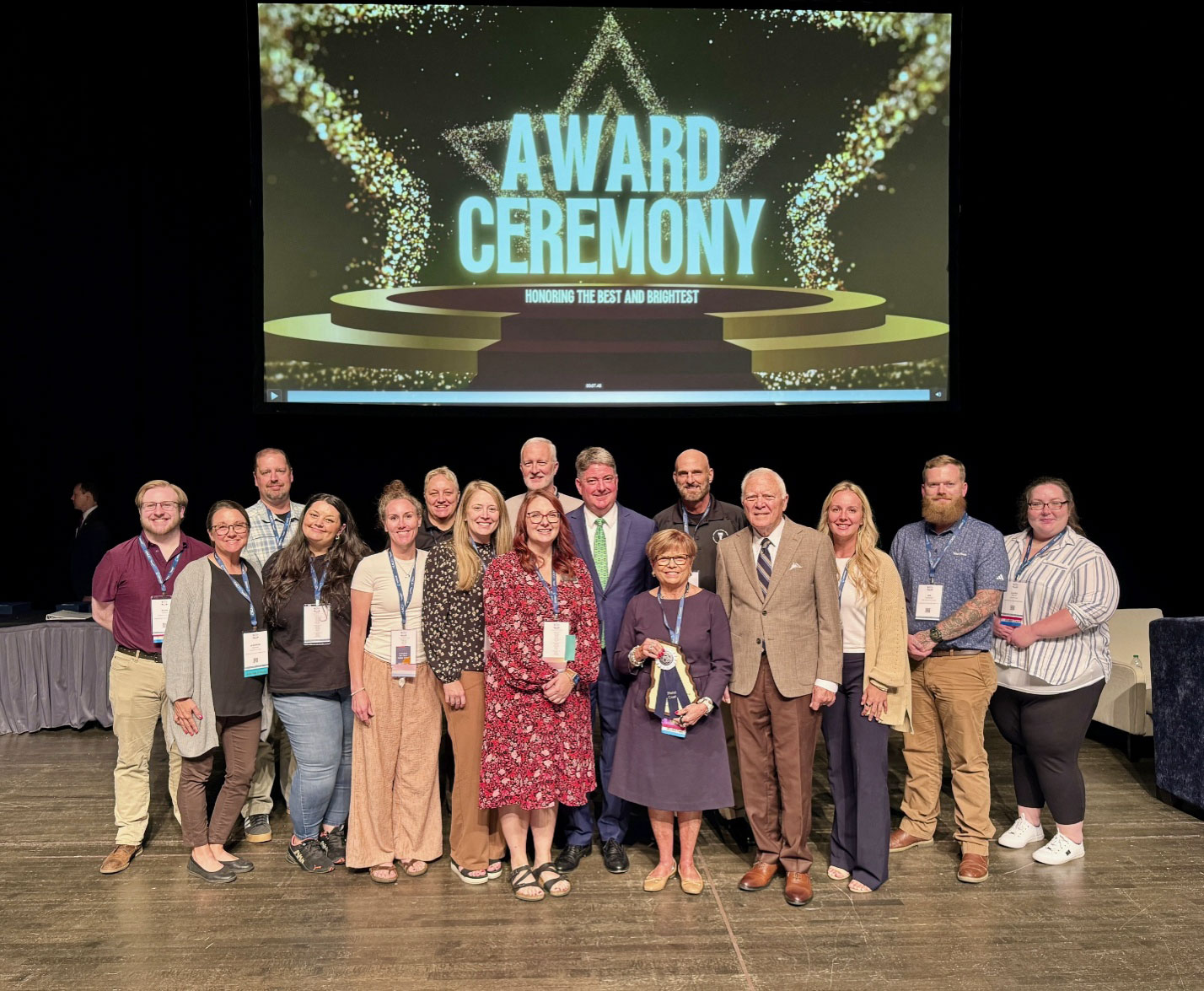
Chief Superior Court Judge Brenda S Weaver and former Governor Nathan Deal, along with staff from the Appalachian Judicial Circuit Drug Court program, after receiving the Model Court Award from the Council of Accountability Court Judges in Athens, Georgia.
ATHENS, GA–The Appalachian Judicial Circuit’s Drug Court was recognized as a Model Court in Georgia. This recognition was given by the Council of Accountability Court Judges at their conference in Athens, Georgia, September 14-17, 2025. The “Model Court” designation recognizes that the court goes above and beyond the standards for an accountability court. The Model Courts will serve as a mentor to newer courts, and personnel from these newer courts can visit the model courts for technical assistance and guidance. This is the third time that the Drug Court has been recognized as a model Court, dating back to 2019. The Model Courts agree to serve for a period of three years.
Chief Superior Court Judge Brenda S Weaver established the Drug Court in 2002 and is still the Presiding Judge. At the time, the idea seemed foreign to many and was not popular during the “Tough on Crime” era of incarcerating drug offenders. Undeterred, Judge Weaver became weary of sending people to prison for crimes that were fueled by their addiction. With no money, and only a few supporters, she started the Felony Drug Court. Participants receive treatment, frequent drug screening, are visited in their home by certified police officers, abide by a curfew, are required to obtain their GED, must regularly pay any court ordered restitution, must complete 160 hours of community service, and must obtain full time employment. Participants come before Judge Weaver every two weeks for court reviews. The program is two years long and, in many cases, charges are dismissed upon completion of the program. For more serious charges, sometimes a participant will come into the drug court as part of their sentence and the charges may not be dismissed, but prison time can be suspended. But most importantly, the participants receive treatment, which helps lower recidivism rates, as well as helps put families back together.
The Appalachian Judicial Circuit also now has a Family Treatment Court, a Veterans Treatment Court, and a HELP court (serving those with mental health disorders). The Veterans Court and HELP Court are also Model Courts.

